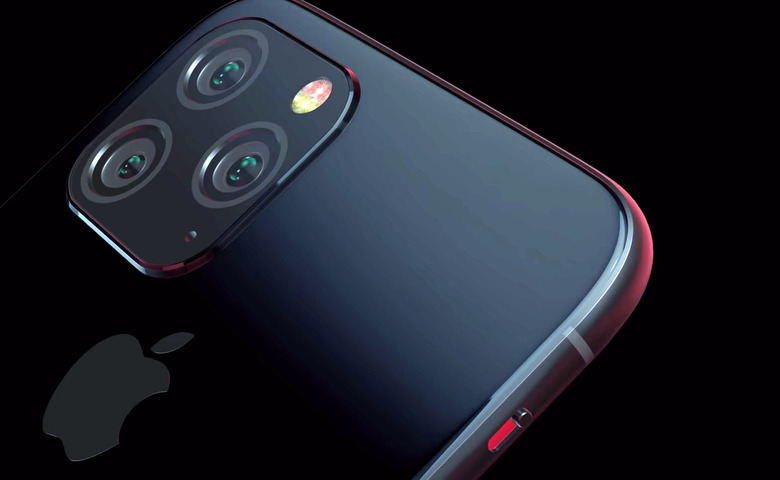Apple's iPhone 12 Will Pack A Processor Unlike Anything Else In The Industry
Each new iPhone generation brings us a brand new Apple processor that is faster than ever, and much better than what the competition has to offer. The A12 chips that power the iPhone XS and 2018 iPad Pros are so fast that they can outperform most computers in benchmark tests. And that performance inspired many comparisons between the iPhone and MacBooks, further fueling speculation that Apple might soon launch MacBooks powered by its own ARM chips.
The iPhone 11 phones that will be released in September will deliver another bump in speed and energy efficiency, and the same goes for the 2019 iPad Pros that will use a souped-up version of that A13 chip. But a new report says it's next year's iPhone series that will pack a revolutionary processor unlike anything else in the industry.
The A12 was the first 7nm chip to ship inside a commercial product this year. This year, the A13 will get a new upgrade. It'll still be a 7nm chip, but it'll be of the extreme ultraviolet lithography (EUV) variety. That means Apple will be able to cram even more transistors in the same space, which would lead to performance gains as well as reductions in energy consumption.
While other smartphones will also feature 7nm and 7nm EUV chips this year, Apple's A13 and A13X will likely deliver the best performance in town, outscoring all their rivals including processors that power laptops and desktops.
This brings us to a new Digitimes report that focuses on TSMC's financial performance so far this year. Buried in the report is an interesting detail about the company's plans for 2020. According to CEO CC Wei, TSMC will be ready to start volume production of 5nm chips in the first half of 2020. Wei also said that an acceleration in 5G adoption will drive demand for 5nm and 7nm processors.
Given that TSMC is the chipmaker charged with producing Apple's A-series chips, it's easy to assume some (or even most) of those 5nm chips are going to power the iPhone 12 series and new 2020 iPad Pro models.
When the A14 and A14X chips launch next year, they will have no equivalent in the smartphone or desktop business. AMD has just launched its own 7nm chips for computers and next-gen gaming consoles, and Intel is trailing even farther behind, still struggling with its own 10nm chips.
With the arrival of 5nm chips, we might see the first A-series processor that will be customized for MacBook usage. There's no indication in the report that Apple will use 5nm chips for MacBooks. But it would certainly be the logical thing to do. Apple already controls its chip designs and can optimize the software on the computers they power. The company could easily do the same with macOS, especially on a platform that would have considerable marketing appeal. A MacBook packing a 5nm A14 chip would likely have no rival.
The 5nm chips will bring more speed and energy efficiency gains to the iPhone and iPad next year, and the same features could undoubtedly be used on the MacBook line. Apple could also build a special 5nm chip for the MacBook that's a lot more powerful than the ones made for iOS devices. After all, laptops do offer more real estate for bigger processors. They can also handle chips that draw more power and dissipate more heat.
That said, there's nothing to guarantee that Apple will launch an ARM MacBook next year. The product would also need a macOS version that can run on ARM chips. But the 5nm tech sure looks like the kind of silicon Apple needs to go forward with ARM MacBooks. What seems to be clear for the moment is that 5nm chips are in the cards for 2020 iPhones, which are also expected to be Apple's first 5G devices.
Conversely, Qualcomm will probably do the same thing for Windows 10 on ARM computers in the near future. The company already has a 7nm platform for PCs, the Snapdragon 8cx, and will surely build a successor using 5nm process technology once these chips are ready for mass consumption.
